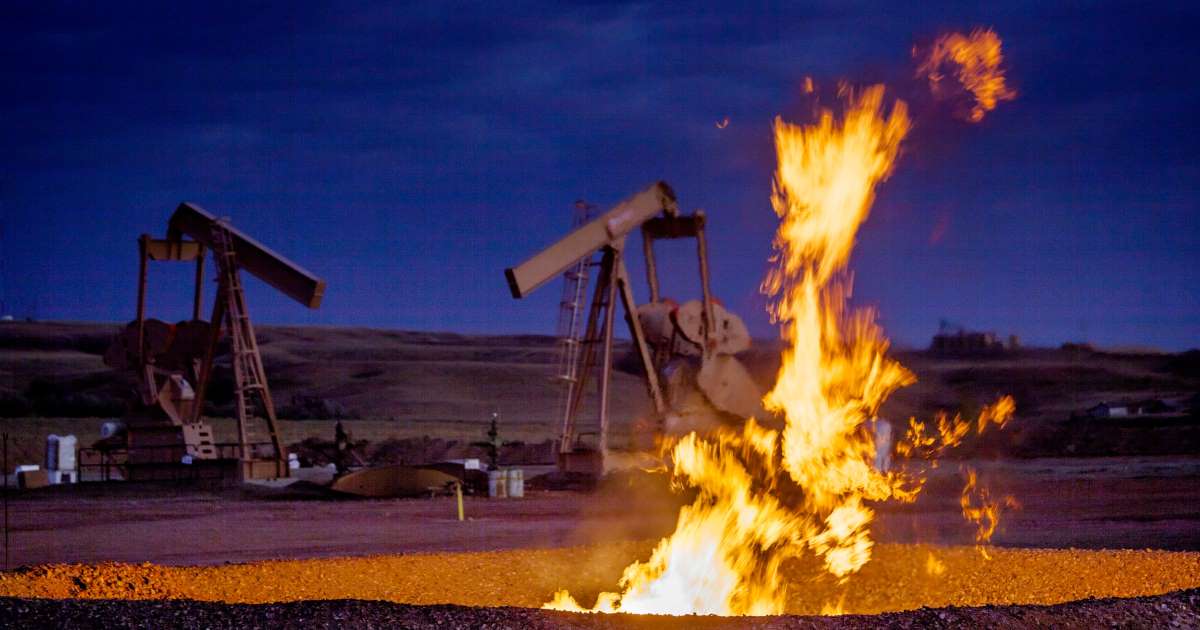Latest Trump Administration rollback of measures to limit climate change
TUESDAY FEATURE
Trump Administration Threatens International Criminal Court, Closes Palestine Office in Washington
The Trump Administration prepares to lift restrictions on the release of methane into the atmosphere.
Methane routinely leaks from oil and gas wells. While making up only about nine percent of greenhouse gases, methane is around 25 times more effective than carbon dioxide in trapping heat in the atmosphere. About one-third of methane pollution is estimated to come from oil and gas operations.
Energy companies complain that rules requiring them to test for emissions are costly and burdensome.
The Administration’s step is its third this year to strip federal efforts to fight climate change. It has also curbed or blocked Government studies, and even prevented agencies from using the words “climate change” on websites.
The Environmental Protection Agency will soon reveal the proposal weakening the Obama-era requirement that companies monitor and repair methane leaks. The Interior Department will repeal a restriction on the intentional venting and flaring of methane from drilling operations.
In July, the EPA proposed weakening of the rule on carbon dioxide pollution from vehicle tailpipes. Last month, it substituted a rule on carbon dioxide pollution from coal-fired power plants with a weaker regulation allowing far more global-warming emissions.
Kathleen Sgamma, president of the Western Energy Alliance, an association of independent oil and gas companies, praised the latest plans: “It all depends on who you trust. That [Obama] administration trusted environmentalists. This one trusts industry.”
After the resignation in July of Scott Pruitt because of multiple alleged ethics violation, the EPA is now led by former coal lobbyist Andrew Wheeler.
Matt Watson, a specialist in methane pollution with the Environmental Defense Fund, explained the consequences of relaxation of methane rules: “These leaks can pop up any time, anywhere, up and down the oil and gas supply chain.The longer you go in between inspections, the longer leaks will go undetected and unrepaired.”

